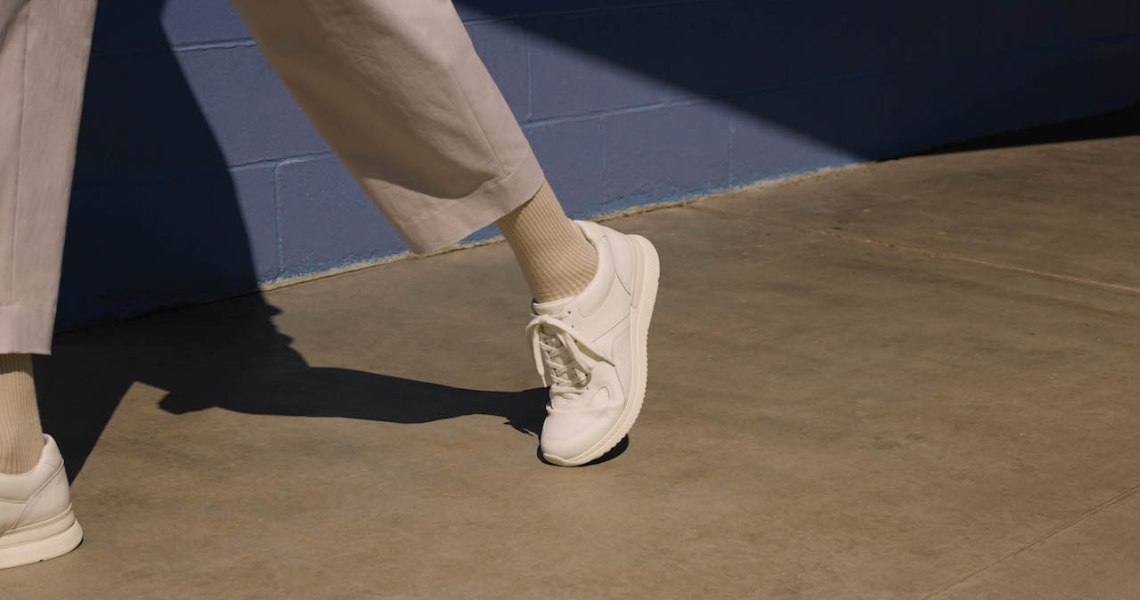Amid the booming sneaker market, Everlane is gearing up to launch its first sneaker brand called Tread by Everlane’s The Trainer on April 25. In line with other Everlane products, the sneakers are designed with sustainability in mind.
“Looking at the sneaker industry, the two biggest issues are virgin plastic and clean water,” said Alison Melville, gm of footwear and accessories at Everlane. “We built the shoe from the bottom up, from a materials perspective, with a focus on not using virgin plastics. For clean water, the focus was on finding a tannery where we could procure leather that does not waste large amounts of water. All of it is about giving this shoe the longest possible lifespan we can give it. We want people to wear it for years.”
Melville said the brand started planning for a sneaker launch more than two years ago, both because of the growth in its existing footwear category and the observance that sneakers had become “the final part of the American uniform,” as Melville puts it. Everlane did not share specific sales data for footwear, but a spokesperson said its Day Glove and Day Heel shoes had a 23,000 and 280,000 person waitlist, respectively, upon their release. The Trainer will be among Everlane’s lowest-priced shoes, at $98.
“It seems like Everlane is expanding to own more of the closet, while staying true to the brand,” said Corey Pierson, CEO and co-founder of customer analytics company Custora. “Sneaker culture is big within fashion, so I see why they are going there. It gives their core customers another category to buy Everlane and could also be a new vehicle for customer acquisition. Sustainability is more in the fabric of the brand than for other sneaker brands, so I can see them using that as a unique hook, both for their existing customers and future customers.”
Unlike most areas of fashion, which have seen sustainability efforts growing, sneakers and streetwear brands are comparatively less interested in sustainability overall. While the big brands like Nike and Adidas have both delivered campaigns and promises geared toward improving their environmental impact, much of the streetwear world is still behind.
“Often, a lot of the brands focused on sneaker culture are not focused on sustainability,” Melville said. “The two are actually somewhat at odds. Trend-driven products are inherently not as sustainable because their life cycle is intended to be shorter. It’s absolutely less of a priority in that area.”
Melville said Tread is not really meant to compete with the bigger sneaker brands, calling it “the anti-hype sneaker” since it is designed for the longest possible lifespan, rather than the shortest. Considering the highly competitive sneaker market, Everlane blazing its own path rather than trying to go head to head with juggernauts like Nike is probably the smartest strategy.
“Everlane is a very strong brand today, and they are very clear about what they stand for,” said Emilia Loie-Andersen, a senior consultant at digital consultancy firm Vivaldi. “They have already managed to establish themselves as a strong player in the footwear industry, and in order to stretch the brand into additional categories, they need to remain consistent with what they stand for.”




